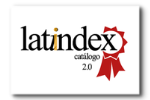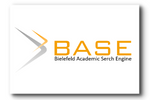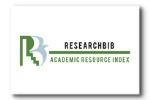The 10th wipo conversation on intellectual property (IP) and frontier technologies
DOI:
https://doi.org/10.5281/zenodo.14509088Palabras clave:
WIPO sessions, Generative AI, AI outputs, Copyright standards, Global collaborationResumen
The paper is a research paper about artificial intelligence (AI) and frontier technologies World Intellectual Property Organization (WIPO) sessions that started in 2019 and reached in November the tenth conference. The research is willing to discuss the link between intellectual property and new technologies and understand the actual international trend. The tenth session, November 2024, focused on Generative AI: IP and Outputs and underlined the reevaluation of Copyright Standards, Consensus on Transparency Tools, and Economic and Ethical Considerations or ethical obligations. Mechanisms like "pay-per-use" models for AI training datasets ensure fair compensation for original content creators, global collaboration and policy harmony, sector-specific challenges and solutions, and some action points. Concluding the paper, there are some considerations about the WIPO actual trend and the AI and new technology in the WIPO system.
Citas
Acemoglu, D., & Restrepo, P. (2018). Artificial intelligence, automation, and work. In The economics of artificial intelligence: An agenda (pp. 197–236). University of Chicago Press. https://www.nber.org/system/files/working_papers/w24196/w24196.pdf
Arrow, K. J. (1962). Economic welfare and the allocation of resources for invention. In R. R. Nelson (Ed.), The rate and direction of inventive activity: Economic and social factors (pp. 609–626). Princeton University Press.
Aveni, A., & Ulisse, C. (2024). Conversas da Organização Mundial da Propriedade Intelectual (OMPI) sobre inteligência artificial. In Instituições jurídicas, inovações de mercado e tecnologia (pp. 36–43). Escola Superior Dom Helder Câmara – ESDHC. Disponível em http://www.conpedi.org.br
Aveni, A., & Faria Campos, L. (2024). Desafios e perspectivas da inteligência artificial na análise da concorrência do poder público. Revista JRG de Estudos Acadêmicos, 7(14), jan.–jul.
Cuntz, A., & Peuckert, J. (2023). From hackers to start-ups: Innovation commons and local entrepreneurial activity. Research Policy, 52(2), 104675.
Cuntz, A., Fink, C., & Stamm, H. (2024). Artificial intelligence and intellectual property: An economic perspective (WIPO Economic Research Working Paper No. 77). World Intellectual Property Organization.
Eco, U. (2015). How to write a thesis. MIT Press.
Hurtado, A. (2018). Protecting the Mickey Mouse ears: Moving beyond traditional campaign-style enforcement of intellectual property rights in China. Fordham Intellectual Property, Media & Entertainment Law Journal, 28(2), 421. https://ir.lawnet.fordham.edu/iplj/vol28/iss2/5
Khan, B. Z. (2005). The democratization of invention: Patents and copyrights in American economic development, 1790–1920. Cambridge University Press.
Khan, F. A. (2024). Intellectual property rights for software, artificial intelligence and computer-related inventions: A comparative analysis. Journal of Intellectual Property Rights, 29(1).
Kizhner, I., Terras, M., Rumyantsev, M., Khokhlova, V., Demeshkova, E., Rudov, I., & Afanasieva, J. (2021). Digital cultural colonialism: Measuring bias in aggregated digitized content held in Google Arts and Culture. Digital Scholarship in the Humanities, 36(3), 607–640.
Reagan, J. (2022). The tragedy of the creative commons: An analysis of how overlapping intellectual property rights undermine the use of permissive licensing. Case Western Reserve Law Review, 72(4), 977. https://scholarlycommons.law.case.edu/caselrev/vol72/iss4/5
United States Copyright Office. (2023). Copyright registration guidance: Works containing material generated by artificial intelligence.
Varian, H. (2018). Artificial intelligence, economics, and industrial organization (NBER Working Paper No. 24839). NBER Working Paper Series.
Watt, R. (2014). The basic economic theory of copyright. In Handbook on the economics of copyright (pp. 9–25). Edward Elgar Publishing.
Williams, S. (2010). Free as in freedom (2.0): Richard Stallman and the free software revolution (2nd ed., R. M. Stallman, Ed.).
World Intellectual Property Organization (WIPO). (2011). World intellectual property report: The changing face of innovation. WIPO.
World Intellectual Property Organization (WIPO). (2023a). Global innovation index 2023. WIPO.
World Intellectual Property Organization (WIPO). (2023b). AI inventions factsheet. WIPO. https://www.wipo.int/export/sites/www/about-ip/en/frontier_technologies/pdf/WIPO_AI_Inventions_factsheet.pdf





















